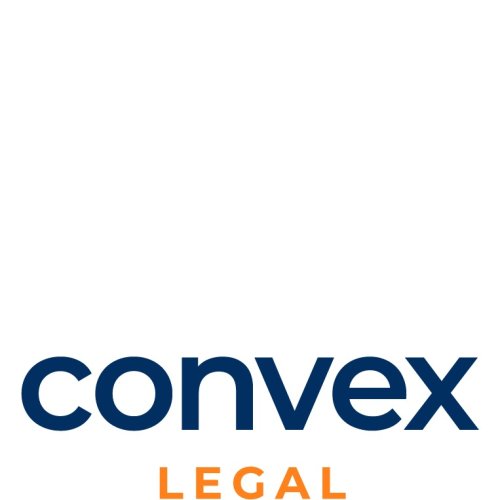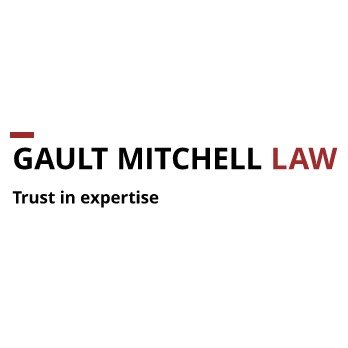Best Debt Capital Markets Lawyers in Wellington
Share your needs with us, get contacted by law firms.
Free. Takes 2 min.
List of the best lawyers in Wellington, New Zealand
About Debt Capital Markets Law in Wellington, New Zealand
Debt Capital Markets (DCM) refer to the financial markets in which companies, institutions, and government bodies raise funding by issuing debt securities such as bonds, notes, and debentures to investors. In Wellington, New Zealand's vibrant capital city, DCM activity is a vital part of the financial landscape, supporting both private enterprise and public sector financing needs. The field is governed by a robust legal and regulatory framework to protect both issuers and investors and ensure market integrity. While Wellington serves as a hub for many financial institutions and government offices, its DCM market is closely tied to the country's overall legal and economic environment.
Why You May Need a Lawyer
Engaging in Debt Capital Markets activities can be complex, involving significant financial and legal considerations. You may need a lawyer for situations such as:
- Structuring and issuing corporate or government bonds
- Drafting and reviewing offer documents, trust deeds, and investor agreements
- Ensuring compliance with the Financial Markets Conduct Act (FMCA) and other regulations
- Negotiating terms with investors or underwriters
- Managing the regulatory disclosure and reporting process
- Handling restructurings, refinancing, or redemption of debt instruments
- Resolving disputes related to debt securities or investor rights
- Advising on cross-border or dual listing of debt securities
- Navigating tax and insolvency implications of debt issuance
- Assisting with due diligence and risk assessment
A specialist DCM lawyer can help avoid costly mistakes, ensure regulatory compliance, and protect your financial interests.
Local Laws Overview
Debt Capital Markets in Wellington are primarily governed by national laws and regulations, which apply throughout New Zealand. Key aspects include:
- Financial Markets Conduct Act 2013 (FMCA) - This is the principal statute governing offers of financial products, including debt securities. The FMCA sets out disclosure requirements, licensing of market participants, and regulatory oversight.
- Financial Markets Authority (FMA) - The FMA regulates market conduct and enforces compliance with financial sector laws.
- Companies Act 1993 - This legislation impacts corporate issuers in areas such as directors' duties and company governance.
- Listing Rules - For listed debt, NZX (New Zealand's Exchange) imposes additional obligations on issuers regarding disclosure, governance, and ongoing reporting.
- Anti-Money Laundering and Countering Financing of Terrorism Act 2009 (AML/CFT) - Issuers and intermediaries must have measures in place to prevent misuse of DCM for illicit activity.
- Taxation Laws - Various rules are relevant for withholding taxes, deductibility, and treatment of interest income.
- Trust Law - Trusts are often used for the benefit of holders of debt securities.
Issuers, underwriters, and investors must understand how these laws interact to avoid unintentional breaches and manage risk.
Frequently Asked Questions
What is a debt security?
A debt security is a financial instrument that represents money borrowed by the issuer from investors, to be repaid later with agreed interest. Common forms include bonds, notes, and debentures.
Who can issue debt securities in Wellington, New Zealand?
Registered companies, government bodies, local councils, and authorized financial institutions may issue debt securities, provided they comply with relevant legal requirements.
What are the main legal risks for issuers?
Issuers face risks such as non-compliance with disclosure laws, breach of directors' duties, default on payment obligations, and exposure to regulatory penalties.
Do I need approval from regulators to issue debt securities?
Some issuances require registration with the Financial Markets Authority and lodgement of a compliant Product Disclosure Statement, unless an exemption under the FMCA applies.
What must be disclosed to investors?
Key information regarding the issuer's financial position, risks, nature of the securities, use of funds, and relevant parties must be disclosed in accordance with the FMCA.
What is the role of a trustee in a debt issue?
A trustee acts on behalf of holders of the securities, ensuring the issuer meets its obligations and protecting investor interests under the trust deed.
Are there restrictions on who can invest in debt securities?
Some offerings may only be available to wholesale investors, while others can be offered to the general public, subject to regulatory requirements.
How are disputes involving debt securities resolved?
Disputes may be settled through negotiation, mediation, or litigation, depending on the issue and contracts in place. Some may also be referred to regulatory bodies.
Can overseas entities issue debt in New Zealand?
Yes, overseas entities can issue debt securities in New Zealand but must comply with New Zealand laws, including the FMCA and AML/CFT requirements.
What are the ongoing obligations for issuers?
Issuers must provide regular reporting and disclosures to holders and regulators, comply with trust deed obligations, and adhere to all relevant laws throughout the life of the security.
Additional Resources
Navigating Debt Capital Markets in Wellington is easier with access to relevant organizations and resources:
- Financial Markets Authority (FMA) - Regulator of New Zealand’s financial markets, offers guidance and publications
- NZX (New Zealand Exchange) - Publishes listing rules, market data, and issuer resources
- Companies Office - Administers company registrations and filings
- Chartered Accountants Australia and New Zealand - Offers information on due diligence and accounting for capital markets
- New Zealand Law Society - Provides access to legal professionals specializing in DCM
- Reserve Bank of New Zealand - Publishes monetary policy and market analysis
Next Steps
If you require legal assistance in Debt Capital Markets in Wellington, consider taking these steps:
- Define your specific needs, such as issuing debt, investing, or resolving disputes
- Collect any relevant documents, financial information, and previous legal advice
- Consult with a lawyer or firm experienced in New Zealand's DCM law and regulations
- Prepare questions about compliance, risk management, and transaction structure
- Discuss potential timelines and expected outcomes with your legal advisor
- Stay informed about any legislative changes affecting Debt Capital Markets
Understanding New Zealand's Debt Capital Markets framework and seeking qualified legal support will help ensure that your activities are successful, compliant, and aligned with your strategic goals.
Lawzana helps you find the best lawyers and law firms in Wellington through a curated and pre-screened list of qualified legal professionals. Our platform offers rankings and detailed profiles of attorneys and law firms, allowing you to compare based on practice areas, including Debt Capital Markets, experience, and client feedback.
Each profile includes a description of the firm's areas of practice, client reviews, team members and partners, year of establishment, spoken languages, office locations, contact information, social media presence, and any published articles or resources. Most firms on our platform speak English and are experienced in both local and international legal matters.
Get a quote from top-rated law firms in Wellington, New Zealand — quickly, securely, and without unnecessary hassle.
Disclaimer:
The information provided on this page is for general informational purposes only and does not constitute legal advice. While we strive to ensure the accuracy and relevance of the content, legal information may change over time, and interpretations of the law can vary. You should always consult with a qualified legal professional for advice specific to your situation.
We disclaim all liability for actions taken or not taken based on the content of this page. If you believe any information is incorrect or outdated, please contact us, and we will review and update it where appropriate.

















